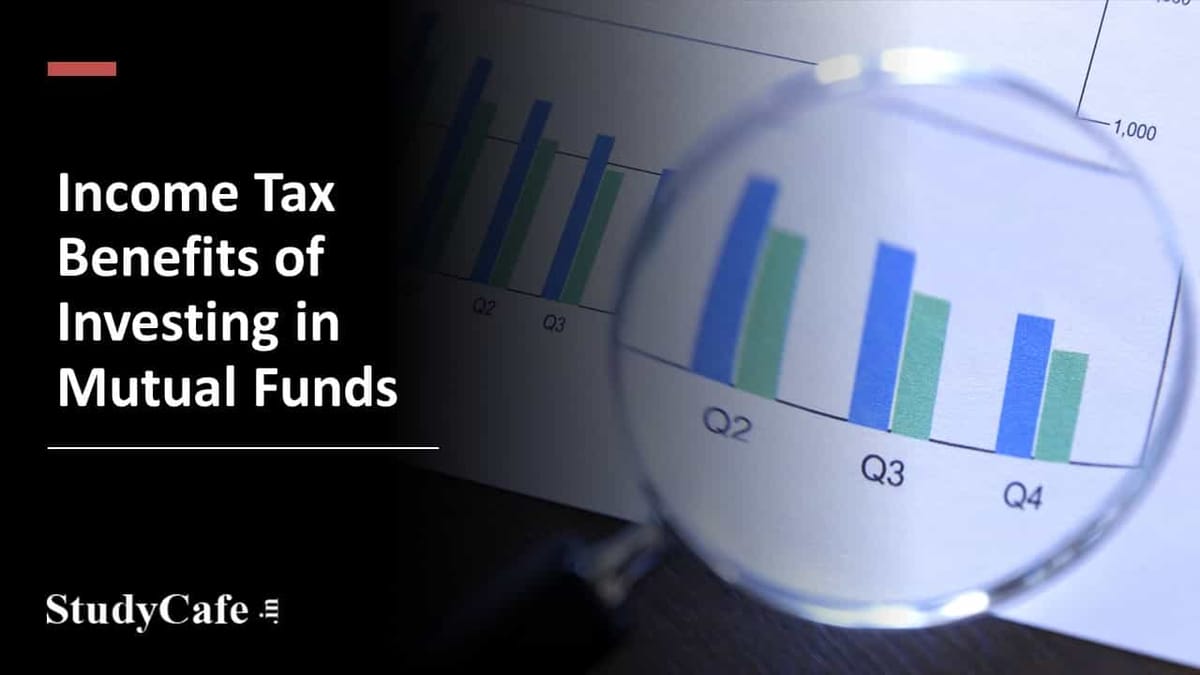Income Tax Benefits of Investing in Mutual Funds
Deepshikha | Nov 14, 2021 |

Income Tax Benefits of Investing in Mutual Funds
When making investing selections, many investors overlook the tax implications. A fixed deposit arrangement that pays 8–9% interest, for example, can make an investor delighted. If interest income is completely taxable, which it normally is, the effective post-tax return for the investor in the highest tax bracket is just 5.6–6.3%. This return may not be sufficient to maintain pace with inflation in the average consumption basket of a middle- or upper-middle-class urban Indian investor.
Mutual funds, on the other hand, are one of the most tax-efficient investing options for Indians. An important element to remember when investing in mutual funds is that a tax incidence only occurs when units of a mutual fund scheme are sold.
Here are some of the tax advantages of mutual fund investing.
One year is the minimum holding time for long-term capital gains in equity funds. Short-term capital gains in equities funds are taxed at a rate of 15% plus 4% cess if sold within one year. Long-term capital gains tax in equity funds is 10% plus 4% cess if the gain exceeds Rs 1 lakh in a financial year. Long-term capital gains of up to Rs 1 lakh are exempt from taxation.
Dividends paid by stock mutual funds are tax-free in the hands of the investor, but the AMC must pay an 11.648 percent dividend distribution tax (DDT).
Short-term capital gains in debt funds must be held for at least three years. Short-term capital gains in debt mutual funds (if sold within three years) are taxed at the investor’s marginal tax rate. As a result, if your tax rate is 30%, your short-term capital gains tax on borrowed funds will be 30% + 4% cess. Debt fund long-term capital gains are taxed at 20% with indexation. To calculate capital gains using indexation, multiply your purchase cost by the ratio of the cost of inflation index of the year of sale to the cost of inflation index of the year of purchase, then deduct the indexed purchasing cost from the sales value. When compared to bank FDs and many small savings plans, indexation benefits cut a debt fund investor’s tax liability significantly.
While dividends are tax-free in the hands of the investor, before delivering dividends to investors, the fund house must pay dividend distribution tax (DDT) at a rate of 29.120 percent for debt mutual funds.
Section 80C of the Income Tax Act of 1961 allows you to deduct investments in Equity Linked Savings Schemes (ELSS) mutual funds from your taxable income. The highest amount of investment that can be deducted under Section 80C is Rs 1.5 lakhs. By investing in ELSS mutual funds, investors in the highest tax bracket (30%) can save up to Rs 46,350 in taxes (Rs 1.5 lakhs X 30.9 percent tax + cess). Investors should be aware that the overall 80C cap is Rs 1.5 lakhs, which includes all eligible items such as employee provident fund (EPF) contributions (deducted by your employer), PPF, life insurance premiums, NSC and ELSS mutual funds, and so on.
In case of any Doubt regarding Membership you can mail us at [email protected]
Join Studycafe's WhatsApp Group or Telegram Channel for Latest Updates on Government Job, Sarkari Naukri, Private Jobs, Income Tax, GST, Companies Act, Judgements and CA, CS, ICWA, and MUCH MORE!"